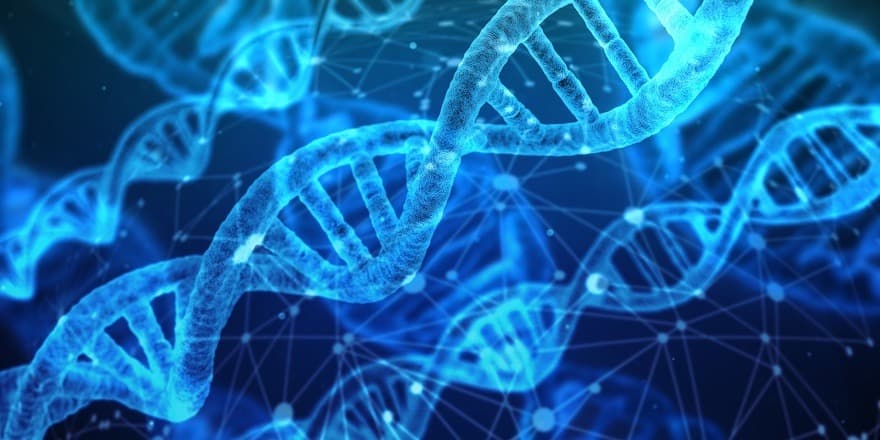What is it?
Isolated in 1948 by Karl Folker and his team as part of a study on pernicious anemia, vitamin B12 is one of the eight B-group vitamins. Also known as cobalamin, it is water-soluble, meaning soluble in water.
It plays an essential role in protein synthesis, cell division processes, DNA construction, the functioning of the nervous system, and the formation of blood elements – red blood cells.

The vitamin B12 present in the body is mainly introduced through food intake. Only animal-based foods and supplementation – dietary supplements, ensure reserves of vitamin B12.
Therefore, it is advised for vegetarians and vegans to take supplements to avoid vitamin B12 deficiencies.
The absorption of this element occurs at the digestive level. Indeed, the process requires the presence of gastric acid and a factor – called intrinsic factor, which is produced by the stomach lining.
The body stores vitamin B12 in the liver, brain, pancreas, and heart. The body’s reserves are about 2 to 3 mg of vitamins within the body.
Daily needs are the lowest of all nutrients (ranging from 0.1 to 1 µg/day). So much so that it generally takes several years, about 5 to 6 years, to notice the first signs of vitamin B12 deficiency.
Vitamin B12 performs several functions in the body. It notably allows to:
- Maintain vitality by participating in glucose metabolism (it converts carbohydrates into glucose). Glucose is the body’s fuel par excellence. It allows the brain to function efficiently.
- It is used in the formation of red blood cells and more specifically hemoglobin. A vitamin B12 deficiency thus leads to the onset of anemia. This condition limits the supply of oxygen and iron to all the body’s organs, hence the onset of fatigue and slowing down sensations.
- It helps maintain nerve balance. Vitamin B12 is one of the elements that form the myelin sheath (a white substance that protects the nerves). It is essential for ensuring proper brain function. In this context, it helps to limit neurological disorders and prevent some neurodegenerative diseases.
- It participates in the production of nucleic acid (involved in DNA and RNA synthesis)
- It is effective in folic acid synthesis, an essential element during pregnancy, during the first three months.
- It helps reduce mood disorders and manifestations of stress.
- It preserves heart function.
Symptoms of deficiency
Vitamin B12 deficiency can occur in cases of intestinal malabsorption, digestive disorders (decreased gastric acidity), or in people who consume little or no animal meat (vegetarians and vegans).
People who have undergone partial gastrectomy (surgical removal of part of the stomach) may also be subject to vitamin B12 deficiency.
Indeed, this element is not synthesized by the body and comes mainly from animal products. However, as daily needs are quite low, it takes several years before the first symptoms of deficiency appear:
- Microcytic anemia (red blood cells formed are too small)
- Extreme fatigue
- Memory issues
- Depressive state
- Sleep/stress disorders
- Loss of appetite
- Muscle disorders
Pernicious anemia is a disease that occurs when the body cannot absorb vitamin B12.
In fact, in this scenario, the body does not synthesize the intrinsic factor, essential for the absorption of vitamin B12. It cannot therefore establish reserves and store this vitamin.
Note: Some medications have an inhibitory effect on the absorption of vitamin B12. This is the case with metformin, a medication used in treating type 2 diabetes. Some medications used to reduce stomach acid secretions limit the absorption of vitamin B12.
Do not hesitate to discuss with your doctor if they prescribe these medications to consider possible alternatives.
Recommended nutritional intake
Given the significant reserves constituted by the body (the body retains vitamin B12 reserves that allow it to function autonomously for 3 to 5 years), the recommended nutritional intake is not very high.
- Babies from 0 to 6 months: 0.4 µg/day
- Babies from 7 to 12 months: 0.5 µg/day
- Children aged 1 to 3 years: 0.8 µg/day
- Children aged 4 to 6 years: 1.1 µg/day
- Children aged 7 to 9 years: 1.4 µg/day
- Children aged 10 to 13 years: 1.8 µg/day
- From age 14: 2.5 µg/day
- Pregnant women: 2.6 µg/day
- Breastfeeding women: 2.8 µg/day
The body partially absorbs the amounts of vitamin B12 provided by the diet. That is why daily intakes are recommended.
Top 5 Foods Containing Vitamin B12
To benefit from the benefits of vitamin B12, it is essential to know the foods that contain it.
Foods rich in vitamin B12 are animal-derived products. Vegetarians and vegans do not consume them. To ensure vitamin B12 intake, they must take dietary supplements daily. Here is a selection of 5 foods containing vitamin B12.
1. Meats and Offal

Red meats (beef) and offal (veal liver, lamb liver) are rich in vitamin B12. Red meat is rather fatty, so it is preferable to consume it in moderation.
To create dietary dishes, it is interesting to compose varied skewers that are oven-cooked and accompany this dish with fresh boiled or steamed vegetables (green beans, broccoli), complemented by a portion of potatoes or whole grains (pasta, rice).
2. Seafood

The advantage of seafood is that they are low in calories, making them foods that can be consumed in large quantities. Vitamin B12 can be found in raw oysters, shrimp, carpet shell clams, or periwinkles.
These seafood can be served as starters, with a tomato or lemon sauce. To limit calories, it is best to avoid mayonnaise, though it can be homemade with light products.
Oysters, shrimp, and carpet shell clams wonderfully accompany pasta dishes when skillfully prepared.
3. Fatty Fish

Fatty fish, such as mackerel, herring, cod, sardines, or cod, are found in sources of vitamin B12. They indeed contain many health-beneficial nutrients, like omega-3 fatty acids and vitamin D.
It is preferable to prioritize baking, in foil, or grilling instead of frying, which requires adding fats. Simply complement your dishes with vegetables and starchy foods for balanced meals.
4. Eggs

Eggs are also foods rich in vitamin B12. Note that while egg whites are high in protein, egg yolks contain cholesterol. Therefore, caution should be taken not to consume too many eggs during the week.
Do not hesitate to have eggs for breakfast (scrambled eggs, hard-boiled or soft-boiled), to get the day going! Eggs also make excellent meals for dinner. They can be enjoyed in omelets with soup, salad, or vegetables accompanied by potatoes.
5. Dairy Products

Rich in calcium, vitamin D, tryptophan – a precursor of melatonin, the sleep hormone, dairy products contain vitamin B12. That’s why it’s important to add natural yogurts, Emmental, Gouda, or Camembert to your meals.
Consume a portion of cheese at lunchtime, with a fruit for dessert and a yogurt in the evening after dinner, forming a good routine. Yogurt can also be a great snack, to be eaten about an hour before bedtime, to ensure a good night’s sleep.
Dangers, Side Effects, and Overdosing on Vitamin B12
As mentioned earlier, the body forms significant reserves of vitamin B12 and only absorbs a portion of the daily intake. Cases of overdosing are therefore extremely rare. There is no dose not to exceed, and attention should be focused on the possibility of deficiencies rather than overdosing on vitamin B12.



